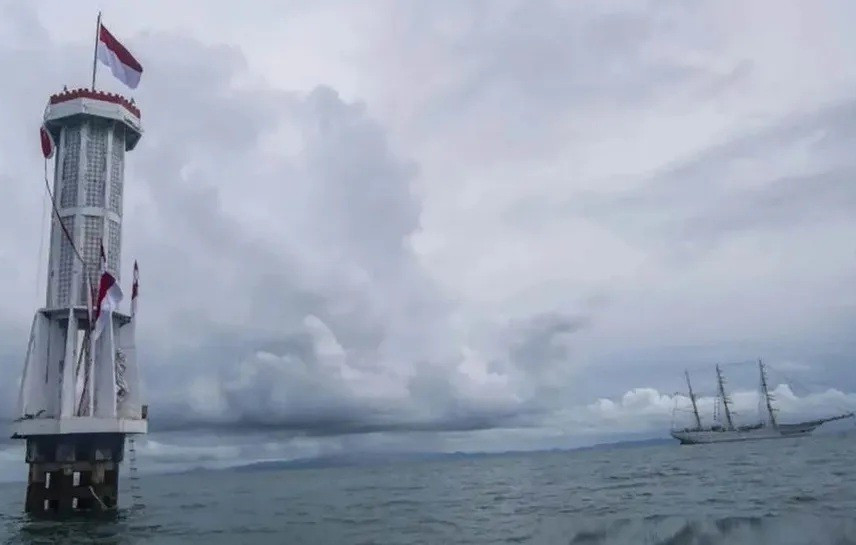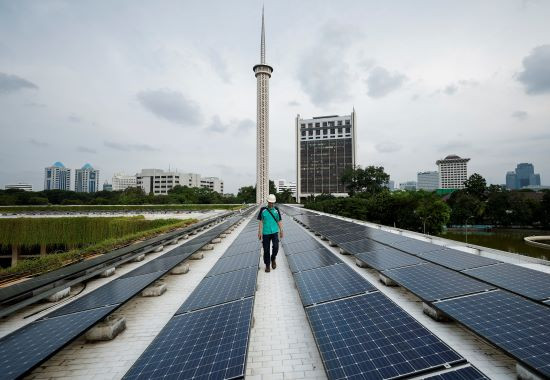Popular Reads
Top Results
Can't find what you're looking for?
View all search resultsPopular Reads
Top Results
Can't find what you're looking for?
View all search resultsEnding the spat over Ambalat
Ambiguous joint arrangements over Ambalat will only allow China to dilute the legal foundations of maritime governance in the region.
Change text size
Gift Premium Articles
to Anyone
The enduring maritime boundary dispute between Indonesia and Malaysia over the Ambalat block has resurfaced, this time with a twist.
Rather than reigniting legal tensions or public nationalist outrage, both governments have signaled a preference for joint development over a final, binding resolution.
We cannot help but ask: Is this a diplomatic innovation or a dangerous detour?
Indonesia and Malaysia are no strangers to legal entanglements. The humiliation from the 2002 International Court of Justice (ICJ) ruling on the Sipadan-Ligitan case, which awarded sovereignty to Malaysia, still lingers in Jakarta.
Likewise, Malaysia’s loss of Pedra Branca to Singapore in 2008 is a reminder that international adjudication offers no guarantees, only winners and losers.
These cases have made both countries reluctant to revisit the courtroom, even as unresolved boundaries continue to bubble.
History reminds us that unresolved maritime disputes can escalate into unintended clashes. Ambalat may erupt again if domestic pressure, with Sabah politicians on one side and nationalist sentiment ahead of upcoming elections on the other, pushes leaders toward brinkmanship.
Given the estimated reserves of up to nearly 764 million barrels of oil in some of the disputed areas, the stakes are too high for overheated rhetoric.
In this light, the new Ambalat arrangement seems almost refreshing: A decision to suspend judgment, share resources and sidestep the zero-sum logic of sovereignty.
On June 27, President Prabowo Subianto and Malaysian Prime Minister Anwar Ibrahim agreed to pursue joint economic development of Ambalat, even as legal negotiations continue. Both leaders have framed the move as a pragmatic step toward peace, development and neighborly cooperation.
In theory, it is an appealing alternative to the gridlock of legal arbitration. In practice, however, it invites much deeper scrutiny.
For one, Indonesia and Malaysia have built their regional reputations on a commitment to the rule of law.
Both are signatories to the 1982 United Nations Convention on the Law of the Sea (UNCLOS), and both have long championed a rules-based order in Southeast Asia. Their willingness now to embrace legal ambiguity in Ambalat may signal a worrying trend: that when legal certainty is politically inconvenient, it can be shelved in favor of expedience.
That shift will not go unnoticed, especially by China.
Beijing has long resisted efforts to settle territorial disputes through binding mechanisms. Its sweeping claims in the South China Sea stand in direct defiance of the 2016 arbitral ruling in favor of the Philippines, and it continues to drag its feet on concluding a robust, enforceable Code of Conduct (COC) with ASEAN.
If Indonesia and Malaysia now pursue ambiguous joint arrangements over Ambalat, they risk setting a precedent, one that China may happily exploit to dilute the legal foundations of maritime governance in the region.
This is not to say that joint development is inherently flawed. On the contrary, it can be a model for peaceful coexistence in contested spaces, but only if implemented with transparency, accountability and a clear roadmap toward legal certainty.
Without those safeguards, it risks becoming a mechanism for permanent postponement, not peaceful resolution.
The Ambalat case must therefore serve as a high-stakes experiment.
If Indonesia and Malaysia can use joint development to build trust while keeping the path open to legal certainty, it will be a milestone in regional diplomacy. But if it becomes an excuse to defer difficult questions indefinitely, it will weaken Southeast Asia’s collective ability to respond to more aggressive actors.
The region is watching. And so is Beijing.
Indonesia and Malaysia now face a delicate balancing act: to cooperate without compromising principles, to innovate without undermining norms.
Ambalat must not become a cautionary tale, it must become a blueprint for lawful, peaceful resolution in a region that desperately needs both.











